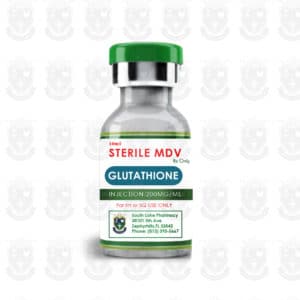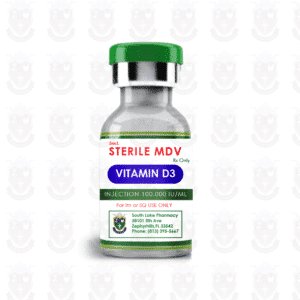Nandrolone Deconate
Drug Inquiry Form:
Description
Nandrolone Decanoate is a medically supervised anabolic steroid injection used primarily for rebuilding tissue, increasing muscle mass, and improving bone density in patients suffering from chronic wasting, severe anemia, osteoporosis, or muscle degeneration. It is a long-acting form of nandrolone, a derivative of testosterone that delivers steady anabolic effects with reduced androgenic activity.
Due to its potent physiological impact, Nandrolone Decanoate is classified as a Schedule III controlled substance in the United States and must be prescribed and administered by a licensed healthcare professional. It is used medically in controlled doses but is often misused in athletic or bodybuilding contexts, which carries significant health risks.
What Is Nandrolone Decanoate?
Nandrolone Decanoate (commonly known by the brand name Deca-Durabolin) is a synthetic anabolic-androgenic steroid (AAS). It mimics natural testosterone’s anabolic (muscle-building) effects but has a longer duration of action and fewer androgenic side effects, such as hair loss or acne.
Medically, it was developed to treat conditions involving muscle loss, chronic weakness, or bone fragility. It helps the body retain nitrogen, increase protein synthesis, and enhance red blood cell production — all of which contribute to improved tissue regeneration and endurance.
How Nandrolone Decanoate Works
Once injected intramuscularly, Nandrolone Decanoate is slowly released from the muscle over several weeks. It binds to androgen receptors within muscle and bone tissue, stimulating the following effects:
- Enhanced protein synthesis: Promotes growth and repair of muscle fibers.
- Increased nitrogen retention: Maintains an anabolic (muscle-preserving) environment.
- Improved red blood cell production: Supports oxygen delivery and endurance.
- Strengthened bone mineral density: Reduces bone fragility in osteoporotic patients.
These combined effects make it a valuable therapy in cases of chronic muscle wasting, long-term illness, severe injury recovery, or anemia due to renal disease.
Primary Benefits of Nandrolone Decanoate Injection
1. Muscle Growth and Recovery
Supports lean muscle mass development and speeds recovery after physical stress, injury, or illness.
2. Bone Strength and Density
Stimulates collagen synthesis and mineral retention, improving bone resilience and reducing the risk of fractures.
3. Red Blood Cell Production
Enhances oxygen delivery and stamina by increasing erythropoietin activity in the bone marrow.
4. Improved Nitrogen Balance
Reduces muscle catabolism and helps maintain a positive nitrogen balance, vital for tissue repair and growth.
5. Relief from Joint Pain
Some patients experience improved joint lubrication and reduced discomfort due to enhanced collagen production in connective tissues.
6. Support in Chronic Disease or Recovery
May be prescribed for individuals recovering from severe illness, surgery, or prolonged immobilization to prevent muscle atrophy.
Recommended Dosage
Nandrolone Decanoate should only be administered under the supervision of a licensed healthcare professional. Dosage and treatment frequency are individualized based on the patient’s diagnosis, age, sex, and medical history.
A healthcare provider will determine the appropriate dose and injection schedule depending on the therapeutic goal, such as treatment of anemia, muscle wasting, or other approved medical conditions.
Patients should never adjust or self-administer this medication without medical guidance. Regular monitoring is essential to ensure safety and effectiveness.
The decanoate ester provides a sustained release, so injections are infrequent compared to other anabolic agents. Self-administration without medical direction is strongly discouraged due to hormonal and systemic risks.
Possible Side Effects
Although effective, Nandrolone Decanoate can cause adverse effects, especially when misused or taken without proper monitoring.
Common, mild effects:
- Fluid retention or mild swelling.
- Acne or oily skin.
- Mood changes or irritability.
- Increased appetite and muscle fullness.
Moderate effects:
- Changes in libido (increase or decrease).
- Temporary suppression of natural testosterone production.
- Gynecomastia (enlarged breast tissue in men).
- Menstrual irregularities in women.
Serious risks (with prolonged or unsupervised use):
- Cardiovascular complications: Elevated cholesterol, increased risk of hypertension, or heart strain.
- Liver stress: Possible enzyme elevation with high or prolonged dosing.
- Endocrine disruption: Suppression of natural testosterone, leading to testicular shrinkage or infertility in men.
- Virilization in women: Deepened voice, body hair growth, or menstrual cessation.
- Psychological effects: Aggression, depression, or dependency symptoms.
Precautions and Professional Use
- Only to be prescribed by a physician for legitimate medical conditions.
- Not recommended for patients with prostate or breast cancer, severe heart or kidney disease, or history of androgen sensitivity.
- Regular monitoring of hormone levels, liver function, and lipid profile is mandatory.
- Should not be used by pregnant or breastfeeding women due to fetal risk.
- Injection must be performed under sterile technique to avoid infection or abscess formation.
Contraindications:
- Known hypersensitivity to nandrolone or any formulation component.
- Active or suspected prostate or breast carcinoma in men.
- Severe liver or kidney impairment.
- Uncontrolled hypercalcemia.
Conclusion
Nandrolone Decanoate Injection is a clinically potent anabolic therapy that promotes tissue rebuilding, bone density, and overall physical strength in patients with medical conditions causing muscle loss or weakness. When administered responsibly under medical supervision, it can deliver meaningful therapeutic benefits.
However, misuse or unsupervised use for cosmetic or performance purposes carries serious health risks, including hormonal imbalance, cardiovascular strain, and liver toxicity. Proper dosing, continuous medical monitoring, and adherence to prescription guidelines are essential for safe and effective treatment outcomes.










